INSIDE ISSUE 19.03 | Jan. 17, 2020
 BIG STORY: House could wade into offshore drilling debate soon
BIG STORY: House could wade into offshore drilling debate soon
NEWS BRIEFS: Governor to announce refugee policy by Jan. 21
COMMENTARY, Brack: Why are there 1,800 untested rape kits in South Carolina?
SPOTLIGHT: S.C. Farm Bureau
FEEDBACK: Send us your thoughts
MYSTERY PHOTO: Maybe a little too cold for this now
S.C. ENCYCLOPEDIA: Robert Mills House, Columbia
House could wade into offshore drilling debate soon

By Lindsay Street, Statehouse correspondent | The S.C. House of Representatives appears ready to weigh in on banning offshore drilling.
Two competing bills — one that would kill the industry before it could begin, and the other that would prohibit local governments from banning it — have been placed on the contested calendar for second reading. Debate could happen as early as next week. But depending on House temperaments, it could be awhile, too.
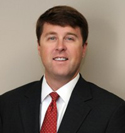
In the first three days of session, the anti-offshore drilling bill, H. 3087 championed by House Judiciary Chair Peter McCoy, R-Charleston, gained 28 additional cosponsors. The bipartisan bill already had 41 cosponsors by the tail end of the first year of the two-year 2019-2020 session. That means 70 members — more than 56 percent of the House — are now sponsoring the bill.
Lancaster Democratic Rep. Mandy Powers Norrell said she has been behind the early push to add sponsors.
“I probably have 10 more people who want to cosponsor it who haven’t gotten onto the sheet,” she said Thursday. “Everyone seems to be on the same page.”
- On Wednesday, a Senate panel pushed forward another bill that would prohibit offshore drilling in South Carolina. Read more.
In May, the House Agriculture, Natural Resources and Environmental Affairs Committee voted to put the bill and its competitor, H. 3471, to the floor of the House.
Agriculture Committee Chair David Hiott, R-Pickens, was one of the House members that voted for debate on Wednesday.
“As we gathered the information and started talking it (in committee), it was thought best we brought them both out of committee and got them on the calendar and let everybody have their say,” Hiott said. “Let’s just have the debate.”
But being on the contested calendar doesn’t necessarily mean House members will begin debating the bills next week or in the coming weeks. They could vote to table the debate, or recommit the bills into committee.
Hiott told Statehouse Report he would be surprised if the House debated the bills before a decision was made on the future of Santee Cooper or the budget was hashed out.
“I don’t think there’s an urgency about it anymore,” he said, citing how the Trump administration has backed off of offshore drilling in the Atlantic and the 2019-2020 budget proviso that prohibits issuing permits for the industry. “(It’s) something that is going to take up a lot of time.”
Aiken Republican Rep. Bill Hixon, a cosponsor of the pro-offshore drilling bill, said he also doesn’t see the bills going anywhere this session.
But Pickens Republican Rep. Gary Clary, an early co-sponsor of the anti-offshore drilling bill, said he expects movement on the floor.
“We’ll be doing something,” he said. “I anticipate it will pass because there’s a real swell of support.”
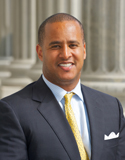
House Minority Leader Todd Rutherford of Columbia said a delay in the Department of Administration’s report on bids for public utility Santee Cooper could open the door for House members willing to wade into this debate.
“We have got to make it clear that offshore drilling is not welcome off the shore of South Carolina,” he said. “Hopefully that will not be something we have a problem with.”
Gov. Henry McMaster has repeatedly voiced opposition to offshore drilling in South Carolina waters. It’s anticipated that he would sign any bill that would prohibit the industry — as he did with the budget proviso last year.
“The governor will do everything in his power to make sure there is no seismic or offshore drilling,” McMaster spokesman Brian Symmes said.
- Have a comment? Send to: feedback@statehousereport.com
McMaster to announce S.C. refugee policy by Jan. 21

By Lindsay Street, Statehouse correspondent | Gov. Henry McMaster will make an announcement before the Jan. 21 federal deadline on whether South Carolina will continue to accept refugees, according to spokesman Brian Symmes.
He said the decision could be made public as soon as today. In 2019, President Donald Trump signed an executive order that mandated states decide whether to continue allowing refugees by Jan. 21, 2020. So far, 37 states have consented and Texas is the only state to have said no to refugees.
“The governor is very deliberative,” Symmes said, adding that McMaster has been “studying and analyzing” the executive order.
However, it is unclear at the time of publication whether a Jan. 15 U.S. District Court preliminary injunction against the executive order will affect McMaster’s announcement.
South Carolina engaged in a public debate over Syrian refugees in 2015 when then-Gov. Nikki Haley and state lawmakers sought to restrict accepting them. Trump’s 2019 executive order is being billed as a way to prevent terrorism.
“State and local governments are best positioned to know the resources and capacities they may or may not have available to devote to sustainable resettlement, which maximizes the likelihood refugees placed in the area will become self-sufficient and free from long-term dependence on public assistance,” the order states.
Columbia Mayor Steve Benjamin and Charleston Mayor John Tecklenburg both signed a Nov. 25 letter urging Trump to rescind the order.
“Refugees contribute meaningfully to our economy as earners and taxpayers. While they receive initial assistance upon arriving in the United States, they see significant income increases in subsequent years,” the letter stated.
In other news:
Santee Cooper report delayed. The S.C. Department of Administration sent a letter to lawmakers Jan. 10 to tell them it needed an extension to finish its report on evaluating bids for the sale, reformation or management of public utility Santee Cooper. By law, the agency can have up to 60 days past the Jan. 15 extension, but many in Columbia do not expect it to take the full 60 days to complete the report. See our coverage from last week about the coming debate and the process after the report is submitted.
House adds human trafficking penalties to prostitution bill. While S.C. House members addressed Thursday Senate Bill 194, which aims to increase penalties for solicitation of prostitution, S.C. Reps. Mandy Powers Norrell, D-Lancaster, and Russell Fry, R-Surfside Beach, amended the bill Thursday to include “more teeth” for the state’s human trafficking laws as they relate to minors, Norrell told Statehouse Report. The bill received second reading and unanimous consent for third reading on Tuesday. The amended bill will go to the Senate for approval and conference.
Senate panel OKs Department of Aging nominee. The Senate Family and Veterans’ Services Committee has unanimously endorsed Connie Munn for the job of leading the S.C. Department on Aging. The vote came a year after senators rejected Gov. Henry McMaster’s first pick. The vote now heads to the Senate floor.
‘Heartbeat’ bill backers call on Senate Republicans. Two weeks after Statehouse Report reported that Senate Majority Leader Shane Massey of Edgefield doubted all Republicans would vote lockstep to pass stricter abortion regulations, supporters for House Bill 3020 flooded the lobby of the Statehouse Wednesday. Read more about the event here.
Daylight Saving Time. S.C. lawmakers have passed their first bill of the year after the House passed a resolution that says South Carolina would adhere to making daylight saving time permanent should Congress allow states to choose. Read more.
2020 candidate calendar
Throughout the campaign season, we are working to keep South Carolina informed of candidate events in the state. Have an event you want us to know about? Email us at 2020news@statehousereport.com.
 Steyer to attend 12 S.C. events. Billionaire Democratic presidential hopeful Tom Steyer will attend a dozen events in South Carolina Jan. 18-20. Here are the events:
Steyer to attend 12 S.C. events. Billionaire Democratic presidential hopeful Tom Steyer will attend a dozen events in South Carolina Jan. 18-20. Here are the events:
- Meet and greet 3 p.m. Jan. 18 at Jerusalem Baptist Church in Hartsville;
- Press conference 6 p.m. Jan. 18 at Seminar Brewing in Florence;
- Town hall 6:30 p.m. Jan. 18 at Seminar Brewing in Florence;
- Speech 8:40 a.m. Jan. 19 at New Ebenezer Baptist Church in Florence;
- Speech 11 a.m. Jan. 19 at Savannah Grove Church in Effingham;
- Brunch 1 p.m. Jan. 19 at Thunderbird Inn in Florence;
- Speech 3:30 p.m. Jan. 19 at NAACP rally at Premier in Orangeburg;
- Climate conversation with S.C. voters, Jan. 19 at 911 Lady St., Columbia;
- Speech 7:45 a.m. Jan. 20 at 24th annual Urban League MLK Breakfast at Brookland Baptist Church in Columbia;
- Speech 10:30 a.m. Jan. 20 at King Day Rally at the Dome at the Statehouse in Columbia;
- Criminal justice reform event 1 p.m. Jan. 20 at 1908 Wilkinson St. in Cayce; and,
- Meet and greet 5:30 p.m. Jan. 20 at Quays in Winnsboro.
Biden swings into S.C. for MLK Day. Former Vice President Joe Biden will come to South Carolina for the following events:
- Church service 11 a.m. Jan. 19 at Bethlehem Baptist Church in Columbia;
- Oyster roast 6 p.m. Jan. 19 at Orangeburg County Fairgrounds in Orangeburg (RSVP required);
- MLK breakfast 8 a.m. Jan. 20 at Brookland Baptist Church in West Columbia (RSVP required); and,
- King Day at the Dome 10 a.m. Jan. 20 at the Statehouse in Columbia.
Sanders comes for MLK Day. Vermont Sen. Bernie Sanders will attend the 2020 King Day at the Dome 10 a.m. Jan. 20 at the Statehouse in Columbia. He will also attend a prayer service 8:30 a.m. Jan. 20 at Zion Baptist Church in Columbia;
Debate to be held in Charleston. Democratic candidates will convene in Charleston on Feb. 25 for a nationally-televised debate that is four days before the state’s primary.
- Have a comment? Send to: feedback@statehousereport.com
Why are there 1,800 untested rape kits in South Carolina?
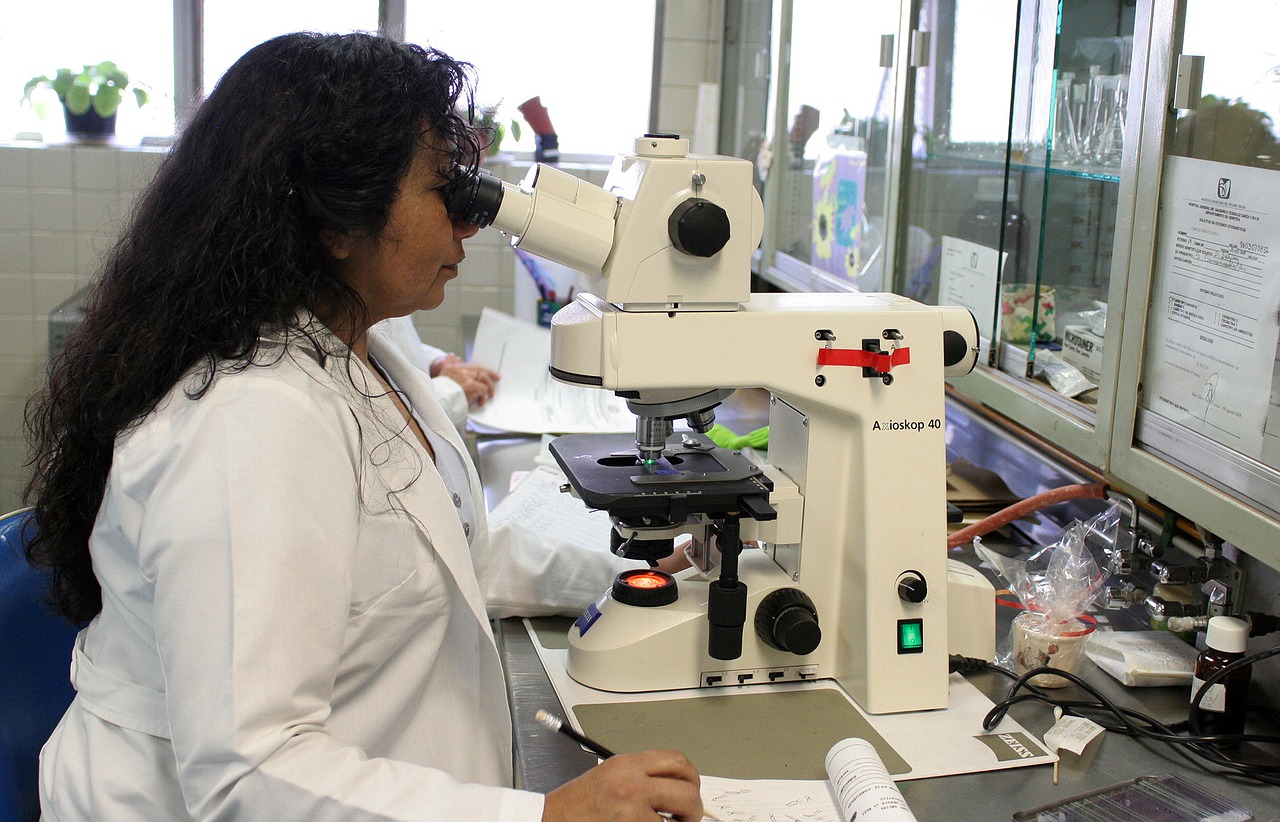
By Andy Brack, editor and publisher | There’s a backlog of untested rape kits in South Carolina because there’s more evidence coming in than authorized labs have the capacity to process.
 One estimate is there are 1,800 evidence parcels that are waiting to be processed before cases can move forward.
One estimate is there are 1,800 evidence parcels that are waiting to be processed before cases can move forward.
As of Dec. 31, the State Law Enforcement Division’s forensics lab had 1,333 untested rape kits waiting for processing, according to spokesman Tommy Crosby. Another 148 are being processed now.
The number of untested kits at the SLED lab, which gets the majority of forensics requests in South Carolina, highlights the real problem — scientific capacity. In 2019, the SLED lab got 842 rape kits to test in addition to hundreds of other evidentiary requests in other cases. For the year, processing was completed on 437 rape kits.
“We’ve got some cases we’re completing right now that are from 2016,” said Dr. Todd Hughey, who directs SLED’s forensics lab. “If you look at the numbers in those cases, if we’re receiving 842 cases a year, and can only do 437 to 450, we are not staying current with the number of cases.”
As cases pile up in the state lab and four smaller certified labs in Beaufort, Greenville, Richland and York counties, help is on the way. The city of Charleston will finish building a new forensics lab by the end of the year. The state plans to consolidate forensics facilities into a new $54 million space next year. It will take an extra year for both to get the additional scientists and equipment in place to start to whittle the backlog.
Victims’ advocates worry untested kits are delaying justice for rape victims, who have to live with the horror of their rapist still walking South Carolina’s streets. In about 25 percent of cases, the victims don’t know their attackers, SLED said. Those cases, like attacks involving violence or children, get priority, much like a gunshot victim in a hospital gets treated in an emergency room before someone who has the flu.
Still, the sheer number of evidentiary kits waiting to be tested is numbing, says ACLU lawyer Susan Dunn of Charleston.
“Untested rape kits remind us that 21st century technology without 21st century funding is classic shortsighted problem-solving,” she said. “This failure to invest in the processing of the tests show that rape victims are not really a high priority. And this unreasonable delay allows sexual predators to go undetected and hampers law enforcement.
“Funds should be allocated immediately to eliminate the backlog and to assure that future rape kits are processed in a timely fashion.”
She’s right, but it’s not as easy as flipping a switch. The challenge is capacity in a state where 2,634 cases of sexual battery were reported in 2018, according to SLED.
“There’s a lot of room for improvement in our industry with rape kits,” Charleston Police Chief Luther Reynolds said, emphasizing that capacity issues on local and state levels are being addressed. “We can get kits tested that need to be tested.”
So what to do with all of the other kits, some of which have victims who don’t want to prosecute? Each piece of evidence in a kit may cost $2,000 to test. If there are, for example, 20 pieces of evidence that need to be bested for police to make a case, it gets fairly expensive to process.
As capacity issues are being resolved for the future, the state and local labs could start outsourcing needed forensics tests to out-of-state labs. But that brings up another thorny problem — the cost of bringing in the scientists who did the tests to testify in cases.
Fortunately, there is a magic wand that can actually fix the problem now as the state ramps up capacity: Steer $5 million in the state budget to outsource untested kits, fund costs to bring in scientists to testify when they’re needed and buy more equipment for scientists to do more of the work they’re doing.
When you’ve got $2 billion in surplus and new funds for the coming budget year, $5 million seems like a drop in the bucket to get justice done now instead of waiting for years.
- Have a comment? Send to: feedback@statehousereport.com.
S.C. Farm Bureau
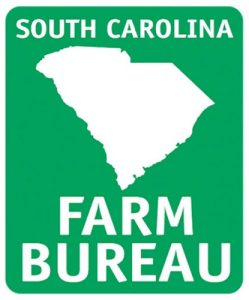 Statehouse Report is provided for free to thousands of subscribers thanks to the generosity of our underwriters. Today we shine a spotlight on our newest underwriter, S.C. Farm Bureau. It is a grassroots, non-profit organization that celebrates and supports family farmers, locally-grown food and rural lands through legislative advocacy, education and community outreach.
Statehouse Report is provided for free to thousands of subscribers thanks to the generosity of our underwriters. Today we shine a spotlight on our newest underwriter, S.C. Farm Bureau. It is a grassroots, non-profit organization that celebrates and supports family farmers, locally-grown food and rural lands through legislative advocacy, education and community outreach.
S.C. Farm Bureau’s alliance of nearly 100,000 members includes everyone from foodies and fishermen to lawyers, restaurateurs, entrepreneurs, community leaders, and of course, farmers. By connecting farmers to the larger community, the organization cultivates understanding about agriculture’s importance to our local economies. The S.C. Farm Bureau explains its mission: “We deepen our collective knowledge of who, where and how food grows. We empower people to make informed choices. We grow mutually-beneficial relationships. And, we ensure the future of the family farms, locally-grown food and the rural South Carolina lands we love.”
- To learn more about S.C. Farm Bureau’s programs, click here.
- To view media and publications, click here
- For policy and legislation, click here.
This guy votes no on Santee Cooper
![]() To the editor:
To the editor:
Don’t sell Santee Cooper. Once you sell the state’s GREATEST ASSET, you can’t get it back !
— Joey Edens, Moncks Corner, S.C.
Tell us what you think — sound off!
We love hearing from our readers and encourage you to share your opinions. But you’ve got to provide us with contact information so we can verify your letters. Letters to the editor are published weekly. We reserve the right to edit for length and clarity. Comments are limited to 250 words or less. Please include your name and contact information.
- Send your letters or comments to: feedback@statehousereport.com
Maybe a little too cold for this now
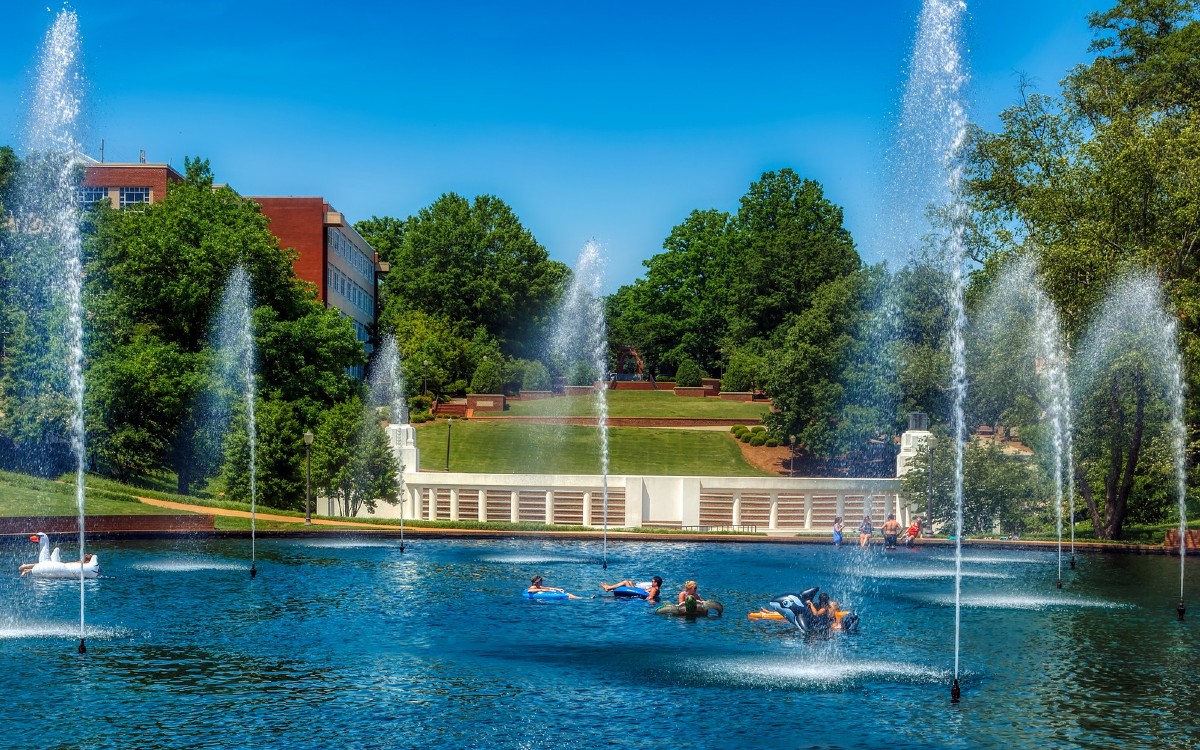
This looks like a fun place, but maybe not at this time of the year when temperatures are expected to drop in the days ahead. Where is it? Send your best guess to feedback@statehousereport.com. And don’t forget to include your name and the town in which you live.
Our previous Mystery Photo
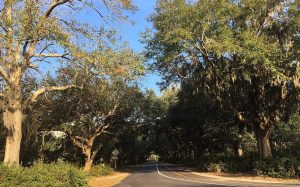 Our Jan. 10 image, “Mystery tunnel,” apparently got a lot of people scratching their heads. Guesses ranged from somewhere on Hilton Head Island or Edisto Island to River Road in Charleston County. But the tunnel was on Mary Murray Drive at Hampton Park adjacent to The Citadel. The camera can be deceiving!
Our Jan. 10 image, “Mystery tunnel,” apparently got a lot of people scratching their heads. Guesses ranged from somewhere on Hilton Head Island or Edisto Island to River Road in Charleston County. But the tunnel was on Mary Murray Drive at Hampton Park adjacent to The Citadel. The camera can be deceiving!
Hats off to successful sleuths: Will Williams of Aiken; Frank Bouknight of Summerville; and Mark Davis of Lexington. Several people identified the photo via our sister publication, Charleston Currents: Chris Brooks of Mount Pleasant; Montez Martin, Stephen Yetman and Kristina Wheeler, all of Charleston; George Graf of Palmyra, Va.; and Archie Burkel of James Island. Thanks all!
- Send us a mystery: If you have a photo that you believe will stump readers, send it along (but make sure to tell us what it is because it may stump us too!) Send to: feedback@statehousereport.com and mark it as a photo submission. Thanks.
S.C. ENCYCLOPEDIA
Robert Mills House, Columbia
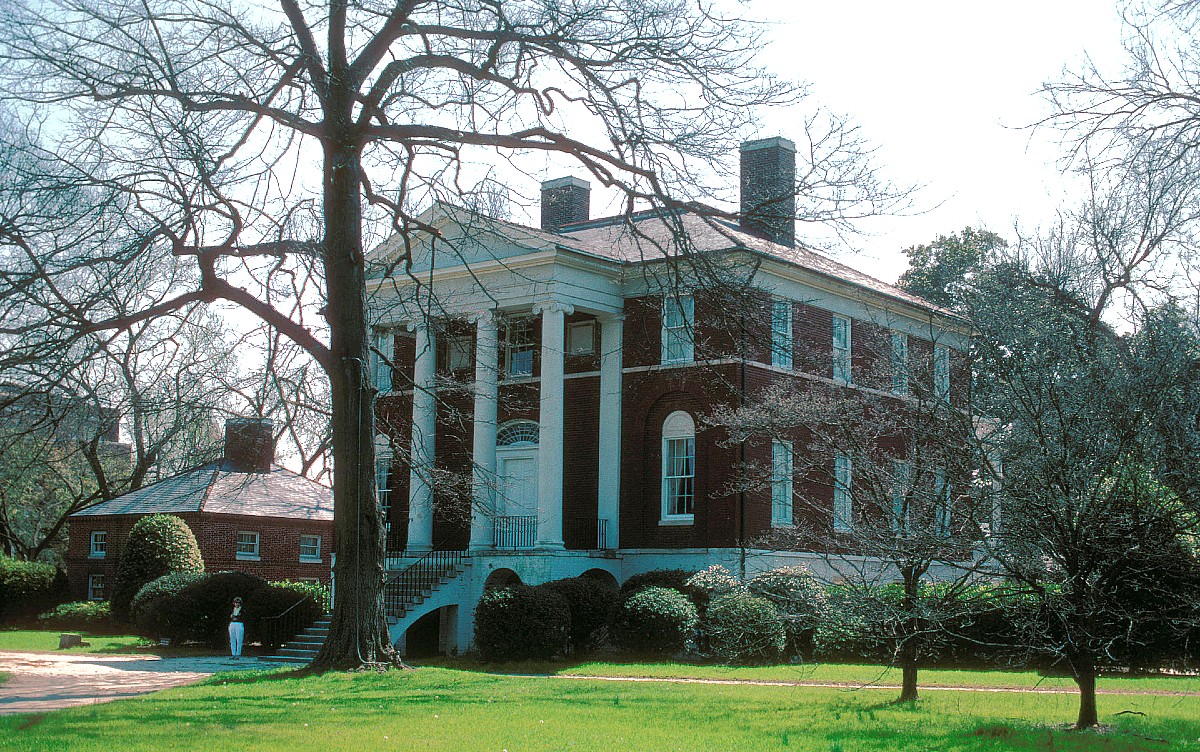
S.C. Encyclopedia | A National Historic Landmark, Columbia’s Robert Mills House is most noted for its association with the first American-trained architect and the first federal architect of the United States. Of further significance is the building’s role as a regionally important religious institution and as an example of the grassroots historic preservation movement of the 1960s.
Originally intended as a private home for the Columbia merchant Ainsley Hall, the three-story mansion ultimately would serve solely in a public capacity. Equally ironic is that the building’s namesake, the Charlestonian Robert Mills, was an architect best known for public works, such as courthouses and jails, throughout South Carolina, rather than private structures. Architecturally, the Robert Mills House exemplifies early nineteenth-century classical revival design and reflects Mills’s association with Thomas Jefferson, James Hoban, Charles Bulfinch, and Benjamin Latrobe. During the building’s construction in 1823, however, Ainsley Hall died prematurely, leaving behind an ill-managed estate, which spawned years of legal suits that eventually resulted in the property’s liquidation in 1829. Purchased by the Presbyterian Synod, the building and its four-acre tract became the Columbia Theological Seminary, an institution that prepared religious leaders from 1830 until 1927.
Following a seven-year campaign for its restoration, the Robert Mills House opened to the public in 1967 as a historic house museum showcasing the neoclassical architecture and decorative arts of the early nineteenth century. Since 1967 the house has been chiefly operated by the Historic Columbia Foundation.
– Excerpted from the entry by John M. Sherrer III. This entry may not have been updated since 2006. To read more about this or 2,000 other entries about South Carolina, check out The South Carolina Encyclopedia by USC Press. (Information used by permission.)
ABOUT STATEHOUSE REPORT
Statehouse Report, founded in 2001 as a weekly legislative forecast that informs readers about what is going to happen in South Carolina politics and policy, is provided to you at no charge every Friday.
Meet our team
- Editor and publisher: Andy Brack, 843.670.3996
- Statehouse correspondent: Lindsay Street
 Buy the book
Buy the book
Now you can get a copy of editor and publisher Andy Brack’s We Can Do Better, South Carolina! ($14.99) as a paperback or as a Kindle book ($7.99). The book of essays offers incisive commentaries by editor and publisher Andy Brack on the American South, the common good, vexing problems for the Palmetto State and interesting South Carolina leaders.
More
-
- Mailing address: Send inquiries by mail to: 1316 Rutledge Ave., Charleston, SC 29403
- Subscriptions are free: Click to subscribe.
- We hope you’ll keep receiving the great news and information from Statehouse Report, but if you need to unsubscribe, go to the bottom of the weekly email issue and follow the instructions.
- © 2020, Statehouse Report, a publication of City Paper Publishing, LLC. All rights reserved.
- Read our sister publications: Charleston City Paper (every Wednesday) | Charleston Currents (every Monday)


